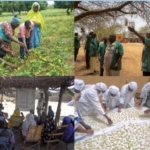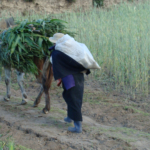


Association Minim Song Panga
CIRAD, INERA
Burkina Faso
12/2019—11/2023
The farmer association Minim Sông Pânga (AMSP) was established in the north-central region of Burkina Faso in 2002 by technical agents and farmers involved in research and development activities. Main objectives were to provide training, information, and support for technology development, and to structure the organization with diverse actors. Over time, with a growing number of producers who wanted to be trained in specific themes, the association initiated local networks around innovative farmer leaders. Today, AMSP is a structure of leaders of farmers’ organizations, with a total of 5,000 members in five communes. In its work, AMSP takes into account new technologies that are subsequently disseminated in the networks of farmers’ organizations at the base. AMSP’s services are carried out largely by association members, who devote part of their time to the effort. They are supported by state technical officers, NGOs, and researchers through project partnerships, thereby building a farmer research network (FRN). AMSP is partner in many projects, mostly funded by the McKnight Foundation (including Networking4Seed, AEI-in-Burkina, Farmer Knowledge, Child Nutrition, Processing, and 3F). Through its involvement in these projects, AMSP became a hub in the north-central region of Burkina. Synergies among projects are an effective way to optimize human and financial resources. The proposed project aims to identify the main drivers that foster the FRN approach around AMSP. If AMSP successfully advances this project, the organization and its leader will gain greater prominence in the WAf CoP, thus enhancing the leadership balance of the regional portfolio.
Funding is recommended because the project will contribute to the documentation of an important FRN and will thus contribute to local and global learning around broader FRN development as a major CCRP endeavor. This project will summarize AMSP’s experiences and learnings regarding farmer participation and farmer-researcher interactions in research-for-development projects and the evolution of the FRN around AMSP since the beginning of the CCRP’s West Africa community of practice in 2006. The project will provide recommendations to farmers, development agents, scientists and political decision makers about how to strengthen the interactions among different stakeholders in an FRN setting, and thereby to improve the efficiency, relevance and impacts of AEI-related research in Burkina Faso, as well as to the global literature on farmer participation and FRN.

